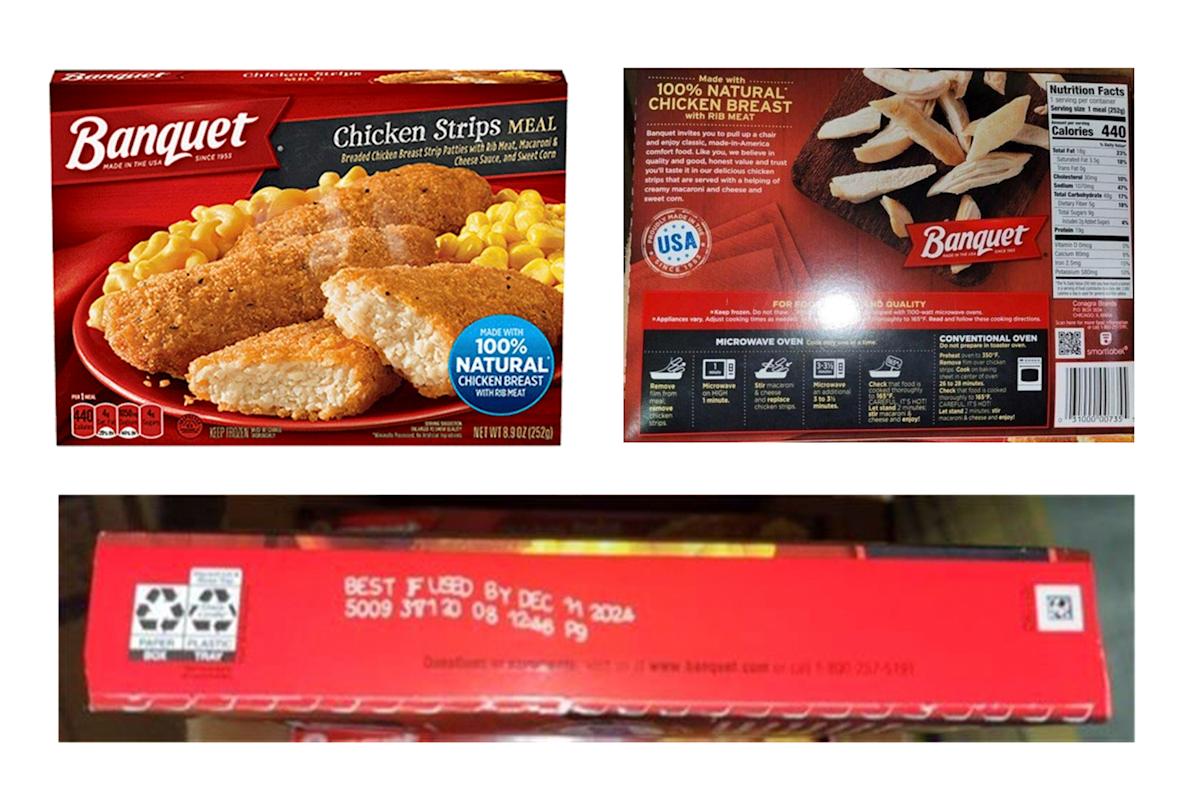Insects in broccoli-cheese soup.
Banquet pieces of plastic in frozen chicken strips.
In recent weeks, U.S. consumers have seen high-profile food recalls for an unappetizing reason: They've been contaminated with foreign bodies that have no place on the dinner plate.
And while no one wants to bite into the stainless steel in peanut butter or the bone fragments in smoked sausage, this kind of contamination is one of the major reasons for food recalls in the U.S.
Food safety experts and federal agencies use the terms \foreign\ or \foreign\ ingredients to describe things like pieces of metal. rubber gaskets and insect parts that somehow turn into packaged products.\\ \\Foreign substances\ triggered nine recalls of more than 477,000 pounds of food organized by the U.S.
Department of Agriculture's Food Safety and Inspection Service in 2022 — three times the number of recalls linked to foods contaminated with toxic E. coli bacteria.
And the size of the recalls could reach millions: In 2019, the USDA reported 34 recalls of more than 16 million pounds of food, spurred on by a giant recall of nearly 12 million pounds of Tyson chicken strips largely tainted with pieces of metal.
Plastic parts from worn conveyor belts, wood parts from production pallets, metal shavings or wires from machines are all common.
So are the rocks, sticks and insects that can travel from field to factory.
Some contamination can even be expected, the FDA acknowledges in a manual. \It is not economically practical to grow, harvest or process raw products that are harmless, naturally occurring, completely free from inevitable defects,\ he said.
Both the USDA and the FDA require companies to notify consumers immediately when food is potentially contaminated with objects that could harm consumers.
Agencies then determine whether recalls are necessary.
Most recalls are voluntary and initiated by companies, but agencies may request or mandate action.
Regulators said the Banquet issue was discovered when someone reported an oral injury after eating chicken strips.
Banquet's owner, ConAgra Brands Inc., declined to comment beyond the firm's news release.
Merchant Joe's would not elaborate on how the ingredient got into the food, which led to its recent recall.
The detection of unwanted objects has greatly improved over the past few years, says Keith Belk, director of the Center for Meat Safety and Quality at Colorado State University.
Large manufacturers use magnets, metal detectors, X-ray devices, and other technologies to find unwanted materials in their products.
Still, they're going to miss something,\ Belk said.
These included pieces of gray nitrile gloves that forced the recall of about 6,400 pounds of chicken tortilla soup in 2021 and pieces of copper wire that led to the recall of about 5,800 pounds of frozen beef shepherd's pie in 2022.There are also two famous examples from 2017: \foreign golf ball supplies,\ which triggered a recall of frozen hash browns, and a dead bat found in a bagged salad that led the Centers.
Disease Control and Prevention recommend rabies treatment for two people.
In recent years, firms have become increasingly cautious and are recalling products more often than before, says Nathan Mirdamadi, consultant at Commercial Food Sanitation, who advises the industry on food safety.
This may be because consumers don't like to find strange things in their food.
Lawsuits can follow, experts said, and hurting your customers is never a good business,\ Mirdamadi added.
Actual contamination may only affect a small amount of products, but firms recall all food produced within a given window just to be safe.
Mirdamadi said that while some of the food can be \\replenished—or processed for safety and sold again, it often ends up in landfills.\ Experts said consumers who find contaminants in food should inform manufacturers, but realize that recalls are also likely to be around.
The point is that there will never be a day when there is zero risk associated with consuming a food product, \\Belk said.___AP Business Reporter Dee-Ann Durbin contributed to this report.___The The Associated Press Department of Health and Science has support from the Howard Hughes Medical Institute's Science and Education Media Group.
The AP is solely responsible for all content.


